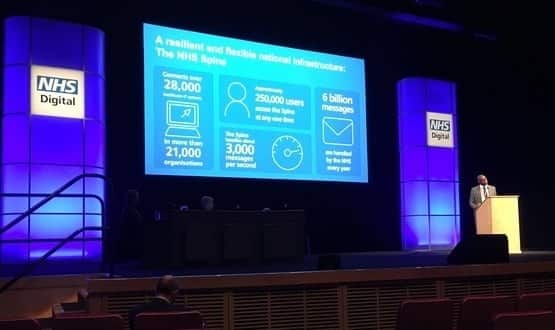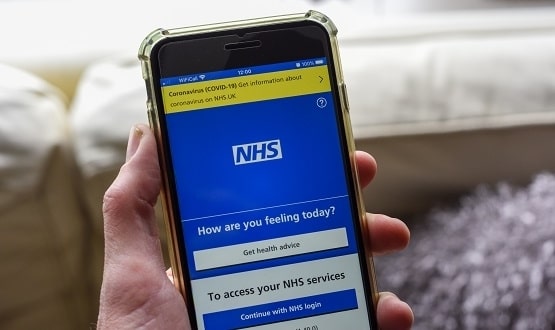NHS Digital programme director: Innovation is not just about ‘chucking an iPad’ at it

Innovation within the health service is not just about “chucking an iPad” at it, the programme director of innovations, digital futures and digital collaboration service at NHS Digital has stressed.
Speaking at the NHS Confederation 2018 Conference in Manchester on 13 June, Cleveland Henry talked about the digital successes and challenges that NHS Digital has encountered.
The session, which was held on the conference’s “Focus on digital and technology” stage, looked into how the advancement of technology in the health and care system has helped transform patient care.
While successes were listed as e-referrals, NHSmail and the Spine, and Henry said technology is being introduced to patients and clinicians across the NHS, he admitted more work was needed to actually get people to use it.
He said: “We have 95% of GPs offering online services but only 20% [of people] are using it.
“Yes we are doing innovation but there’s work we need to do. We can’t just chuck an iPad at it.”
Henry added that it is important to deliver solutions “that are easier to use than not to”, adding clinicians must be “comfortable” employing the technology on a daily basis.
He said: “We need to make sure that we do our job so that front-line staff can do theirs.
“The more digital we make services, the easier it becomes for the staff to treat patients.”
Overall Henry said the aim of was to make the NHS “future fit” and said innovation should not be stifled by previous IT projects.
He said: “Let’s not be held back by the mistakes made in the past.”
Henry was joined on stage by Shona McMahon, CIO at Frimley Health NHS Foundation Trust, who said the conversation around technology needed to be changed.
Also speaking as part of the session was Stephen Docherty, CIO at South London and Maudsley NHS Foundation Trust.
Docherty told the audience how the trust had developed a messaging service which allowed staff to communicate effectively away from “email culture”.





3 Comments
At last! Most activities involve the 3Ps – people, processes (modus operandi) and products (technology). The products (technology) are not ends in themselves as some people think, but tools for people to implement processes. Techno-geeks I’m afraid don’t understand his argument. If you throw technology at broken processes, all you get is a faster journey to the inevitable cockup. The NHS has seen a lot of this. I read stuff by senior people, including MPs, urging ‘techno revolution’, ‘latest technology’ without a mention of the other 2 Ps, especially processes. These, and in particular communications processes, I believe are broken or non-existent in the NHS and unless they are fixed before even thinking about ipads, iPhones and other electronic ‘gizmos’. With nearly half a century in IT, I know this for a fact as I have been there.
Change and transformation is much more to do with the people and the process which confine them than any IT or technology. Since 1847 there has been tghe capability to Fax. However, few individuals have used or currently use fax machines for their personal work. Compare this with the mobile phone, or should that now be the mobile camera, which is almost universal inn its use. Why? Because it was meeting the needs of the users. It was easy to use and the change to how individuals communicated was moving in the direction of mobile rather than fixed.
Then look at the NHS! Where paper is dominant. Service and Technology providers see data as theirs rather than a commodity for improved health and social care. Funding arrangements mitigate against any attempt to change practice. Technology training is not always available in the medical and nursing schools.
How then can we expect successful change when it is easier to keep the status quo than to rebel against outdated practices.
Train the people, change the processes then underpin these new ways of working with technology.
Future Geek – or Russian bot?
Comments are closed.